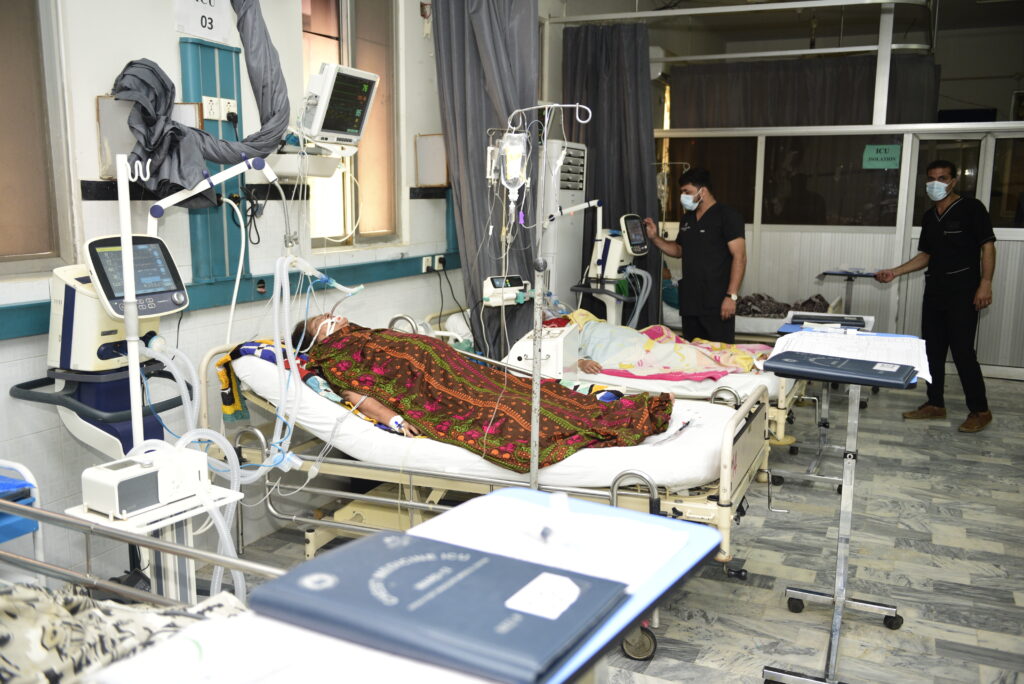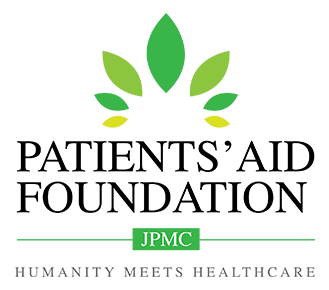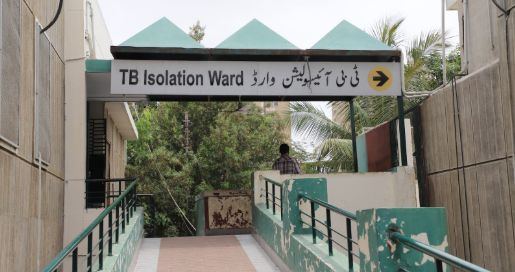Raising COPD Awareness with Patients’ Aid

Patients’ Aid revamped Chest Ward at JPMC
Today marks World COPD Day, an international observance dedicated to raising awareness about Chronic Obstructive Pulmonary Disease (COPD), a serious health condition affecting millions of people worldwide, including many in Pakistan.
A meta-analysis reveals that the prevalence of COPD in Pakistan is 13.8%, with higher rates observed in males compared to females. Furthermore, according to a 2023 NIH article, around 14.2 million people worldwide were affected by COPD as of 2021. With these statistics, it’s crucial to understand the risks, symptoms, and preventive measures to protect lung health.
While COPD may sound severe, it is preventable. On this important day, Patients’ Aid is committed to raising awareness about these common health conditions providing free healthcare to those who cannot afford treatment at Chest Department JPMC. We focus on supporting vulnerable communities, particularly at Jinnah Hospital in Pakistan, where many patients receive essential care.
Join us in spreading awareness by sharing this blog and donating to this noble cause, ensuring more people have access to the healthcare they need to manage serious health conditions.
Click here to read about Pneumonia and its impact on lung health.
What is COPD?
Chronic Obstructive Pulmonary Disease (COPD) is a progressive lung disease that causes airflow obstruction, making it difficult to breathe. This condition damages the airways and other parts of the lungs, leading to chronic breathing problems. COPD is most commonly seen in people who have long-term exposure to harmful substances such as cigarette smoke, air pollution, or certain chemicals.
There are two main types of COPD:
- Emphysema: This condition refers to the damage and enlargement of the air sacs (alveoli) in the lungs, which reduces the lung’s ability to exchange oxygen and carbon dioxide.
- Chronic Bronchitis: This is characterised by long-term inflammation of the bronchial tubes, resulting in persistent coughing and excess mucus production.
COPD is the most common health condition among middle-aged or older adults who have been exposed to smoking, air pollution, or other harmful substances.
Symptoms of COPD
The symptoms of COPD develop gradually and get worse over time. Common signs include:
- Difficulty Breathing: shortness of breath especially when you are doing physical activities.
- Persistent Cough with Mucus: Often dismissed as a “smoker’s cough,” this chronic cough is frequently accompanied by mucus production.
- Frequent Chest Infections: People with COPD are more prone to respiratory infections such as bronchitis and pneumonia.
- Wheezing: A whistling or squeaky sound when breathing, caused by narrowed or obstructed airways.
- Fatigue: Unusual tiredness or weakness, especially with physical exertion.
- Cyanosis: A bluish tint to the lips or fingers, indicating low oxygen levels in the blood.
As COPD progresses, these symptoms can become more severe and interfere with daily activities, underscoring the importance of early detection and management.
Causes of COPD
The primary causes of COPD include:
- Smoking: The leading cause of COPD, responsible for the majority of cases.
- Long-term Exposure to Air Pollution: Both indoor air pollution (e.g., biomass fuels like wood and coal) and outdoor pollution (e.g., vehicle emissions, industrial pollutants) can damage the lungs over time.
- Occupational Hazards: Long-term exposure to dust, chemicals, and fumes in the workplace can increase the risk of developing COPD.
- Frequent Respiratory Infections: Early childhood respiratory infections can increase the risk of COPD later in life.
These factors lead to long-term inflammation in the lungs, causing narrowing of the airways and impaired breathing. However, COPD is preventable, and with the right treatment and precautions, its progression can be slowed or even improved.
Can COPD Be Prevented or Managed?
COPD is preventable, and the earlier it is detected, the better the chances for effective treatment. Avoiding smoking, exposure to air pollution, and managing any underlying respiratory infections are key steps in preventing COPD. If diagnosed early, COPD can be managed with lifestyle changes, medication, and in some cases, oxygen therapy.
COPD, Respiratory Health Challenge in Pakistan
According to the World Health Organization (WHO), the estimated prevalence of Chronic Obstructive Pulmonary Disease (COPD) and asthma in Pakistan stands at 2.1% and 4.3%, respectively. With over 60% of the population residing in rural areas, limited access to primary healthcare services further contributes to the challenges faced by vulnerable groups in managing these respiratory conditions.
Tobacco use continues to be a significant public health issue in Pakistan, with around 20% of adults smoking, and the trend is increasing among the youth. In addition, both indoor and outdoor air pollution, particularly from biomass burning (e.g., wood stoves), contribute to airflow obstruction and the development of related comorbidities, including lung cancer.
The Role of Patients Aid in Making Healthcare Accessible to All
Patients Aid has revamped the Chest Ward at JPMC that now offers advanced treatment for a wide range of conditions, including specialized ICU for Chest diseases’ patients and a separate Ward for TB patients.
Why does it matter to donate to Patients’ Aid? Because your contribution creates a life-changing impact through humanitarian initiatives such as ‘Roz ka Sadqah’ in providing quality healthcare and relief to those suffering in silence. Patients’ Aid works tirelessly to ensure that even the most vulnerable have access to the care they need.
With cutting-edge facilities and technology for diagnostics and treatment, Patients’ Aid enables JPMC to provide the best possible treatments and care for unprivileged patients free of cost.
Let’s help those who need us
Your donation helps provide life-saving care to those who cannot afford basic healthcare. Remember, healthcare is a basic right and every Sadqah/Zakat/Donation counts in making these humanitarian initiatives possible.
Donate now to help those in need. Click here to learn how you can donate online.
Your support brings hope where it’s needed most.


